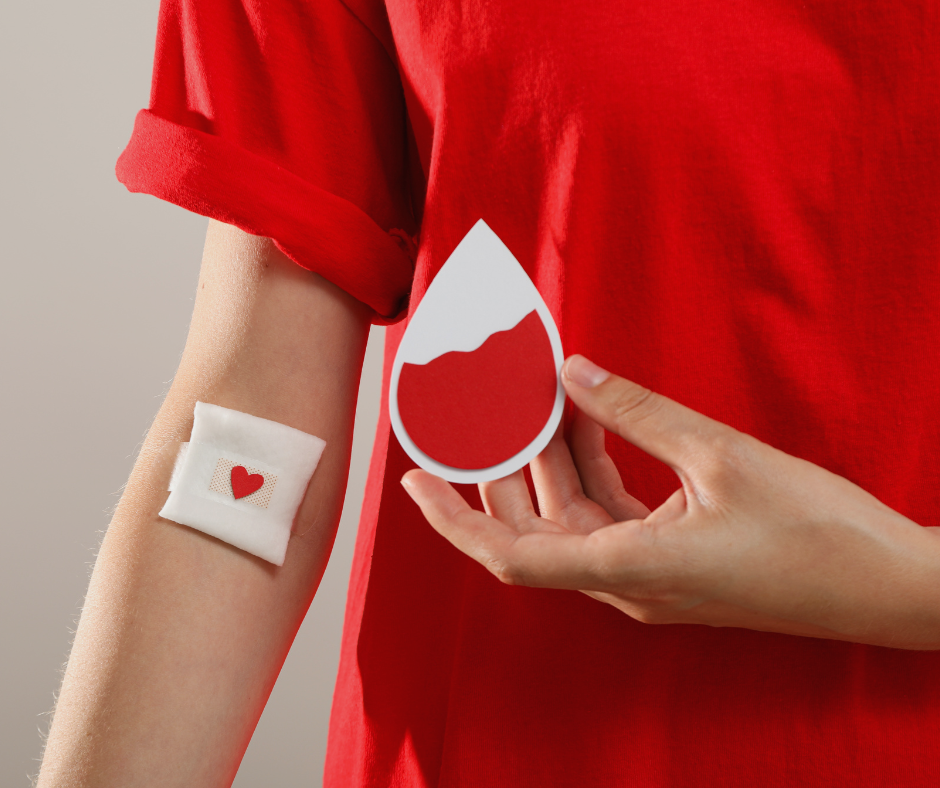For expectant mothers and loyal plasma donors alike, one question often comes up: Can you donate plasma while pregnant?
You cannot donate plasma while pregnant. Although donating plasma is an incredible way to help others, special considerations must be made during pregnancy. Your well-being, as well as the well-being of your baby, is most important.
This comprehensive guide will explore important topics surrounding plasma donation and pregnancy, provide guidance for postpartum moms, and offer practical ways to contribute to your community while pregnant.
Why Can’t Pregnant Women Donate Plasma?
When pregnant, your body undergoes significant physiological changes to support your growing baby. One of these changes includes an increase in blood volume, which helps supply oxygen and nutrients to the uterus. During pregnancy, plasma composition also changes, making it unsuitable for donation.
Additionally, plasma donation temporarily removes proteins and fluids from your body, which can increase the risk of complications such as dehydration, low iron levels, or dizziness. For safety reasons, plasma donation centers, guided by FDA and health organization standards, prohibit expectant mothers from donating.
Plasma donation centers also test for a condition called Human Leukocyte Antigens (HLA). During pregnancy, the developing baby introduces unique HLA markers to the mother’s plasma. If this plasma is used for treatments, it could trigger complications in patients receiving the donation.
Key Takeaways:
- Pregnancy significantly alters the body, making plasma unsuitable for donation.
- Because of potential risks and complications, expectant mothers cannot donate plasma.
What Happens If You Donate Plasma While Pregnant?
If a woman donates plasma while pregnant, there may not be immediate risks, but it’s critical to inform the plasma center as soon as possible.
Key Takeaway:
- If you suspect you might be pregnant, please inform the staff at your local plasma center. Consult with your doctor if you donated plasma while pregnant.
What Happens to Plasma During Pregnancy?
During pregnancy, your plasma undergoes various changes to adapt to your baby’s needs. The volume of plasma in your body increases significantly, which helps deliver oxygen and nutrients through the placenta. Protein composition within the plasma also transforms to support fetal development. These changes play a vital role in maintaining a healthy pregnancy but render plasma temporarily unsuitable for donation.
Interestingly, these changes highlight the amazing adaptability of your body during pregnancy!
Can You Donate Plasma While Breastfeeding?
It is not recommended to donate plasma while breastfeeding. When breastfeeding, your body is still undergoing changes to replenish nutrients and fluids needed for both you and your baby. Plasma donation could impact milk supply by reducing hydration levels or essential nutrients.
Nursing mothers may be eligible to donate, given certain conditions. If you are breastfeeding and your child has commenced receiving solid foods, which generally starts between 4 to 6 months, you may be eligible for plasma donation. A child’s primary source of nutrition should not just be breast milk when their mother is donating plasma.
Please note that it is particularly important for nursing mothers to be aware that plasma donation may temporarily decrease milk supply. Therefore, we encourage you to consider this factor before deciding on plasma donation. We urge you to ensure your child’s proper nutrition and your well-being above all.
How Soon After Pregnancy Can You Donate Plasma?
Octapharma Plasma recommends a minimum 6 month waiting period postpartum. If you’re eager to get back to donating plasma after having your baby, be patient and allow your body ample time to recover.
Before scheduling a plasma donation appointment, follow these steps:
- Consult your doctor to ensure you’re physically prepared for the donation process.
- Stay hydrated and eat iron-rich foods to rebuild your blood composition. Learn more here about what to eat before donating plasma.
- Confirm eligibility with your local plasma donation center.
Once cleared, your donations can save lives and provide crucial plasma-based treatments to patients in need.
Other Ways to Help Your Community While Pregnant
While plasma donation may be off the table during pregnancy, there are still plenty of meaningful ways to contribute to your community:
- Volunteer your time at local food banks, shelters, or community centers. Many organizations offer positions that are low-stress and suited for expectant mothers.
- Support causes financially if you’re in a position to do so. Even small donations can have a big impact.
- Raise awareness for plasma donation by encouraging family and friends to donate. Sharing the importance of plasma-based medicines can inspire others to get involved.
- Organize donation drives for items like clothing, baby supplies, or non-perishable food.
These acts of kindness help make a difference while keeping you and your baby safe during this special time.
Celebrate Motherhood & Make a Difference
Being pregnant or recently postpartum doesn’t mean you can’t continue making a positive impact—plasma donation may just need to wait until your body is ready. Until then, focus on celebrating this unique life stage and supporting your community in other impactful ways.
When you’re ready to donate again, remember that plasma saves lives. Start planning your donation comeback and find a plasma donation center near you.







